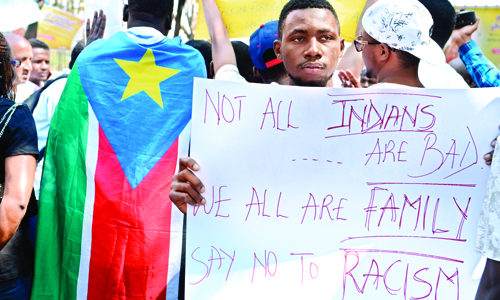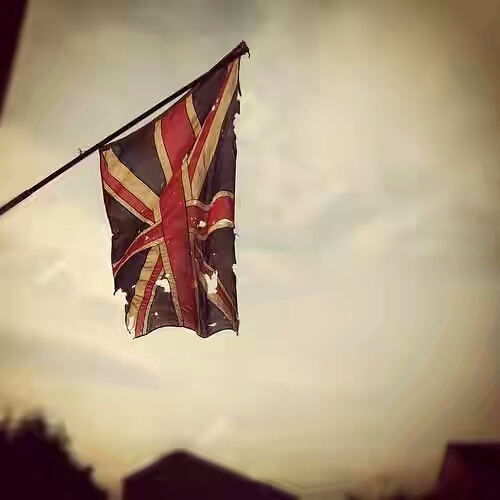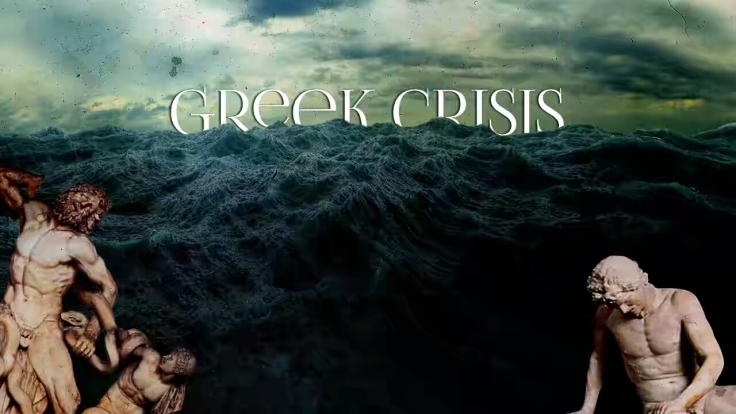“Colours“, symbolises joy . We feel so happy when we see different colours (red, yellow, brown , black). Obviously who doesn’t like colour ,right ? But it feels so ironical that when this same colour is used to denote skin colour, we start prejudicing. Then in that particular case , every Indian wants ‘whiteness‘ . (No doubt the beauty cream companies spend shellings on uplifting this prejuduce ‘Fair & lovely’ ; only if you are fair , you are lovely !!)
In fact, the harsh truth is ‘Having a brown or black complexion in India is a curse now’ . We Indians have gone so deeply in love with this ‘White‘ blinded mentality that we have turned intolerant towards any other skin colour. People don’t realize but it’s so damn true. I don’t need to prove this anyway, though to put some data on table just read recent news on attacks on African students in Delhi -NCR. Not to mention , the way we see and treat our own fellow citizens from North East , bullying & insulting them by calling ‘chinese‘ & ‘chinkys‘ .
And not just that , we discriminate even between north and south indians on basis of their colour ofcourse , taking no note of how good they are in person . Particularly, these north- eastern brothers are highly talented guys ,still they are being ashmed by us so called ‘Proud Indians‘.
To bring to light , Indians have inherited this ‘White‘ superiority mentality from the 200 years long British rule . Britishers were very much successful in implanting the “White Man Burden” philosophy (‘blacks’ are burden to be born by ‘whites’)inside Indian culture which still has it’s vicious effect. Talking about one of the many recent cases of mob violence against Africans , may be if those three african students have been ‘Fair skinned‘ , they wouldnt have suffered the brutality for false drug peddling suspicion . But unfortunately they were wearing the WRONG colour.
Based on that study, Washington Post released a “fascinating map of the world’s most and least racially tolerant countries,” a nifty infographic that paints the world in hues ranging from deep blue tolerant to a dark red racist.
In the map, India was coloured in crimson, symbolizing “most racist”.
This Zero tolerance policy of us is putting all shorts of hardships and vicious race crime against Africans . 
This vicious race crime is a clear sign of terrible ignorance, arrogance and the recycling of old tropes of Africans as“
uncivilised”. Indians,with their preference for “whiteness”and their total lack of information and exposure to Africa’s rich cultural heritage and its contemporary politics, have denied Africans in India their basic humanity which is demonstrated in their accusations of“cannibalism”—the ultimate denouncement of the“in human other”
Nana Peasah, a Ghanaian student, has returned recently to Accra after studying at the University of Mysore for two years. He was the international students’ co-coordinator at the university in 2015-16. He sought to learn about India and joined the Rotary Club East of Mysore. While Mr. Peasah had a lot of foreign student friends from around the world, it was harder to make friends with Indian students. To make friends with women students was almost impossible, as Indian men were quick to accuse Africans of making advances at ‘their’ women even if they were merely studying together.
What people don’t see here is that Indian students have an opportunity to meet African students and learn about a part of the world of which they know little.
And what seems more hypocritical is when Indians raise voices against racial crimes suffered by Indian students in other countries like Australia .
……. A ray of Hope
 In the backdrop of all those prejudice thinking , racial absuses, assaults, there is still a hope for a new Dawn.
In the backdrop of all those prejudice thinking , racial absuses, assaults, there is still a hope for a new Dawn.
Arrest of people who incited the attacks on Africans will not solve the problem. These are only temporary measures. Another attack can happen anytime in a matter of days or weeks . Social diseases like ‘Racism‘ can only be cured by treating ‘ignorance‘ with the light of understanding about different cultures. What we need to accept is ‘ We all are one big family & every big family has differences ‘ . We need to look above this “white“ complexion blinded mentality & see every individual on equal platform of humanism.
~~~ Special thanks to Anubhav Dey & Shruti Bajaj for helping me in pening down & editing this blog .~~~








 Pic courtesy: abibitumikasa.com
Pic courtesy: abibitumikasa.com
